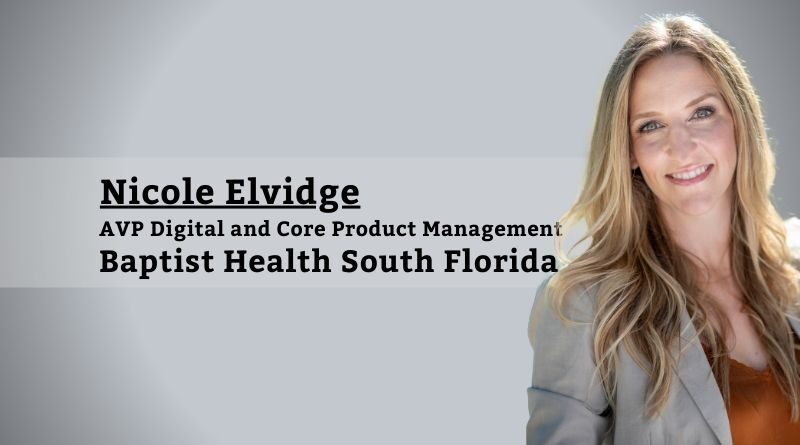Why Healthcare Desperately Needs Product Teams
By Nicole Elvidge, AVP Digital and Core Product Management, Baptist Health South Florida
Thanks to technology, our lives are connected and convenient in so many aspects. However, while everything from getting a ride to ordering groceries is as simple as pressing a button, healthcare still lives in the dark ages.
If ten people are asked about their healthcare experience, around 8 would say it’s sub-par. Until now, consumers haven’t had real alternatives for healthcare and were forced to accept an experience that was difficult, lacked transparency, and cost more than it should.
But the landscape is changing. With major players entering the market, the threat to traditional healthcare organizations is real. These disruptors are part of patients’ daily lives, and have already perfected user experiences. If changes aren’t made to meet or beat disruptors in these spaces, hospital systems can expect to lose many high-volume encounters.
Enter the product organization. Thinking about patients as customers and adopting the product-centric mindset of solving real needs and meeting people where they are is a new, but necessary trend for healthcare. Equally important, treating clinicians as true users can help decrease burnout and improve overall patient health.
Technology in healthcare is woefully behind, but technology alone can’t solve the problems. That’s what led to the mess of the EMRs we have in place today—built by software engineers to digitize a process without considering the impact to the end-user. Without a long-term, strategic, user-centric roadmap, EMRs are massively expensive solutions that make it nearly impossible to integrate or pass data outside the system walls. Patients suffer, doctors suffer, our collective health and wellbeing suffer.
Product teams ensure the voice of the user – patient, clinician, or consumer – is known, represented, and used to make strategic decisions about solutions.
More than that, product teams allow operational and clinical staff to remove the “IT hats” they’ve historically worn and focus on their areas of expertise. Being fully embedded with operations, the product team lives and breathes their vision and strategy, and suggests products to help achieve targets. When operations teams can forget about IT, they can focus on streamlining operations, cutting costs, and improving care.
By studying the industry, competitors, and keeping a keen eye on parallel industries, product teams not only know what exists today, but are in tune with trends to predict what will be important to users in five years, and build the foundation to get there.
The balancing act between ensuring a product adds value to the user, the business, and is technologically feasible is harder than it sounds. Many attempt to find this balance but allow egos to get in the way. Those who truly succeed in this space worry less about who generated ideas, and more about delighting users. These are products consumers gladly buy because the experience is superior to any other. The ones that integrate so seamlessly into life that moving to a different product is painful. These companies are consumed with the user experience. It’s their end all, be all, it drives every single decision they make, all the way down to the tiniest detail. They live and breathe product, and it’s why they excel.
It’s time for healthcare to shift their focus to the user, to make experiences so good, that the patient can’t justify a move, the best clinicians are fighting to work for institutions who have brought the joy back into healthcare. So good that people regain a sense of control over their health. It’s time for product to become the new norm in healthcare.



